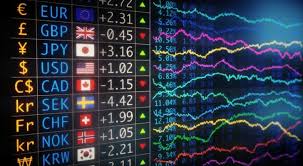Unveiling Forex Trading Scams: How to Protect Yourself
The forex trading landscape is rich with opportunities, but it is also littered with potential pitfalls, especially for those who are new to the market. forex trading scam https://onlinetrading-cm.com/ have become increasingly prevalent as more individuals turn to online trading platforms in search of financial independence. Understanding these scams and how to protect yourself is crucial in ensuring a safe trading experience.
What is Forex Trading?
Forex, or foreign exchange, is the global market for trading national currencies against one another. It is the largest financial market in the world, with daily trading volumes exceeding $6 trillion. Traders aim to profit from fluctuations in currency prices by buying one currency while simultaneously selling another. While forex trading can be profitable, it also involves significant risks, especially for those who do not possess adequate knowledge or experience.
The Rise of Forex Trading Scams
As the forex market has grown, so too have the number of scams targeting unsuspecting traders. These scams can take various forms, but they all share a common goal: to extract money from traders without providing any real value in return. The anonymity of the internet has made it easier for scammers to operate, leading to a burgeoning industry of fraudulent schemes.
Common Types of Forex Trading Scams
1. Ponzi Schemes

Ponzi schemes are a classic investment scam where returns to older investors are paid using the capital of newer investors rather than from profit earned by the operation of a legitimate business. In forex Ponzi schemes, the scammer often promises high returns with little to no risk. New investors are lured in by these promises, but as the scheme progresses, the operator eventually disappears with the invested funds.
2. Signal Provider Scams
These scams involve individuals or companies offering trading signals to help investors make profitable trades. However, many signal providers merely promote their services without providing any real expertise. They may charge hefty subscription fees for signals that are often inaccurate or misleading, leading to significant financial losses for the investors who follow them.
3. Phishing Scams
Phishing scams are designed to steal personal information from traders by masquerading as a trustworthy entity. Scammers may send emails or create fake websites that appear legitimate, tricking potential victims into providing login credentials or financial information. Once the scammers have this information, they can access the trader’s accounts and siphon off funds.
4. Unregulated Brokers
Trading through unregulated brokers is one of the biggest risks in forex trading. Many brokers operate without oversight from financial regulatory authorities, leaving traders unprotected. These unscrupulous brokers may engage in unethical practices like widening spreads, manipulating prices, and refusing to allow withdrawals. It is essential for traders to choose brokers regulated by reputable authorities to avoid falling victim to such scams.

Signs of a Forex Trading Scam
Identifying a forex scam can sometimes be difficult, especially for inexperienced traders. Here are some red flags to watch out for:
- Guaranteed Returns: If an investment opportunity promises guaranteed returns with little to no risk, be very cautious. All trading involves risk, and no legitimate trader can guarantee profits.
- Lack of Regulation: Always check if the broker or trading platform is regulated by a recognized authority. Unregulated brokers often operate in a legal gray area.
- High-Pressure Sales Tactics: Scammers often use high-pressure sales tactics to push you into making quick decisions. Take your time and do thorough research before committing your funds.
- Vague or Misleading Information: If the information provided by a broker or trading platform is unclear or seems too good to be true, trust your instincts and proceed with caution.
How to Protect Yourself from Forex Scams
While the risks associated with forex trading scams can be daunting, there are steps you can take to protect yourself and your investments. Here are some best practices:
- Do Your Research: Before engaging with any broker or trading platform, conduct thorough research. Read reviews, check regulatory status, and look for any complaints from other traders.
- Educate Yourself: Understanding the basics of forex trading and the different strategies involved can help you identify scams and make informed decisions.
- Use Regulated Brokers: Always choose brokers that are regulated by recognized financial authorities. This ensures that they adhere to industry standards and practices designed to protect traders.
- Be Skeptical of High Returns: If something sounds too good to be true, it probably is. Approach offers that promise extraordinarily high returns with skepticism.
- Protect Your Personal Information: Be careful about sharing your personal and financial information online. Only provide this information on secure platforms and to trusted entities.
Conclusion
The forex market can be an enticing avenue for investment, but it is not without its risks. By remaining vigilant and informed, traders can protect themselves from common scams and make sound trading decisions. Always remember to do your due diligence, rely on regulated brokers, and educate yourself about the ever-evolving forex landscape. Your financial safety and success depend on your awareness and understanding of potential pitfalls.
